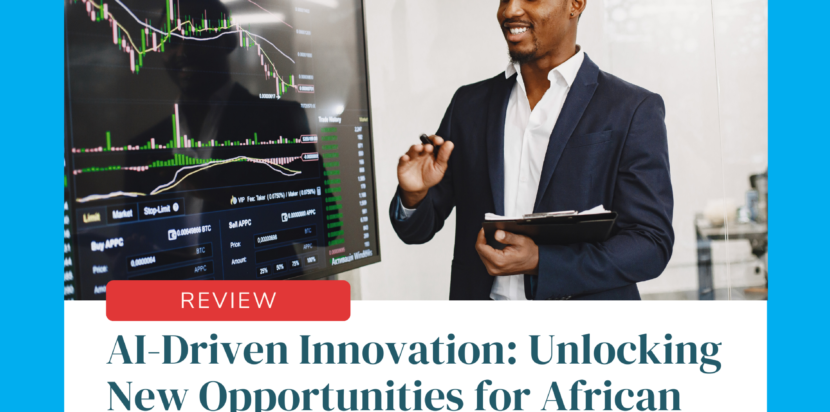Artificial Intelligence (AI) is revolutionizing the entrepreneurial landscape in Africa, providing startups and small and medium-sized enterprises (SMEs) with unprecedented opportunities for growth and scalability. With AI-powered solutions, businesses can optimize operations, enhance customer engagement, and make data-driven decisions that improve efficiency and competitiveness. From chatbots that offer 24/7 customer support to predictive analytics that help businesses forecast market trends, AI is enabling African entrepreneurs to overcome traditional barriers such as limited access to capital, skilled labor shortages, and inefficient supply chains. This technological transformation is particularly crucial in industries like fintech, agritech, healthtech, and e-commerce, where AI-driven tools can help businesses scale rapidly and reach previously underserved markets.
Beyond operational efficiency, AI is also fostering innovation by democratizing access to advanced technological resources. African startups and SMEs can leverage AI-driven platforms for financial inclusion, such as credit-scoring algorithms that assess loan eligibility based on alternative data sources, enabling more entrepreneurs to secure funding. Similarly, AI-powered marketing tools help businesses personalize customer experiences, refine product offerings, and enhance brand visibility with automated content generation and targeted advertising. Moreover, AI is transforming the logistics and supply chain sectors, allowing businesses to optimize delivery routes, reduce costs, and minimize waste. By integrating AI into their business models, African entrepreneurs can level the playing field with global competitors, driving economic growth and technological advancement across the continent.
However, despite AI’s transformative potential, challenges remain, including issues related to digital infrastructure, data privacy, and the need for AI literacy among business owners. Many African startups struggle with the high costs of AI implementation and the scarcity of local AI talent, which can slow adoption rates. To fully harness AI’s potential, stakeholders—including governments, investors, and educational institutions—must collaborate to provide accessible AI training programs, foster supportive regulatory environments, and invest in AI research and development. By addressing these challenges, African nations can unlock AI-driven innovation at scale, empowering startups and SMEs to thrive in the digital economy and contribute meaningfully to sustainable development across the continent.
